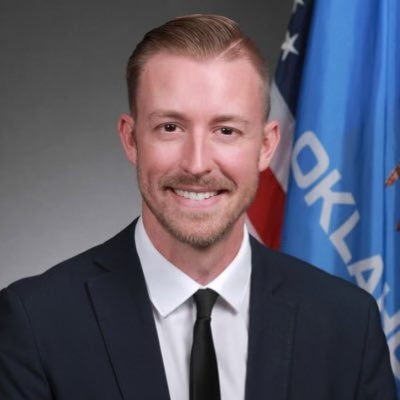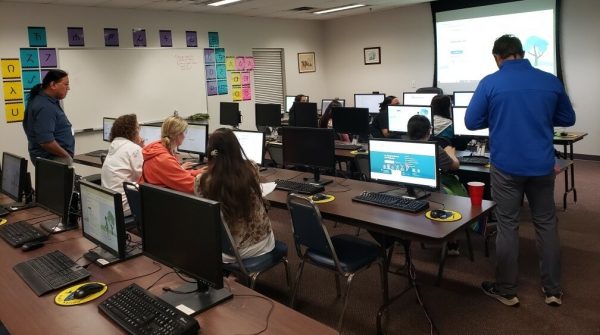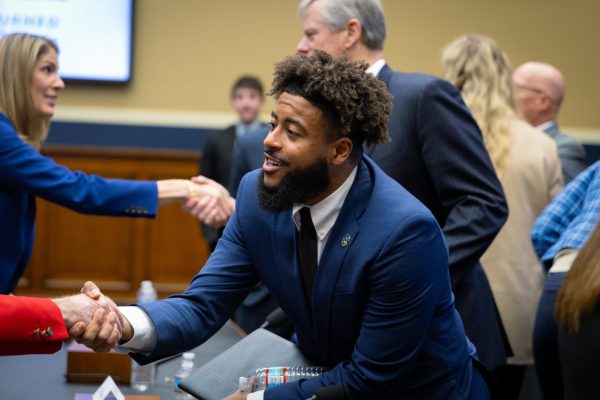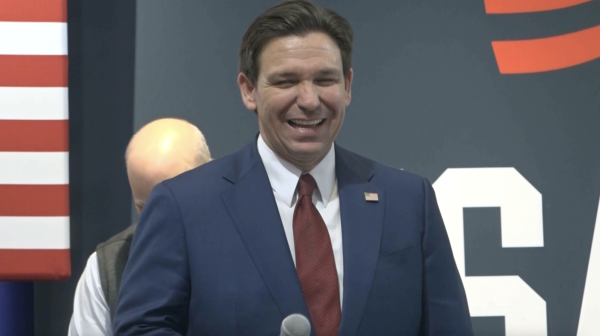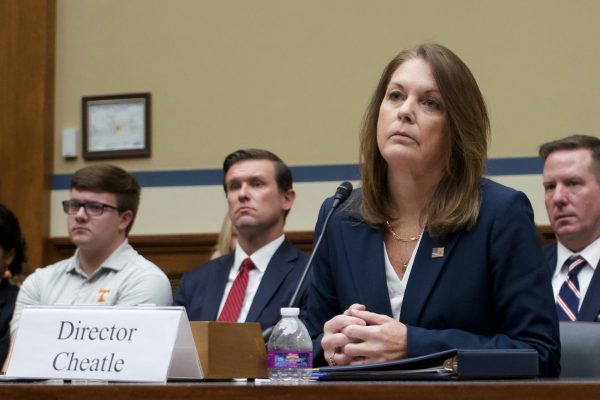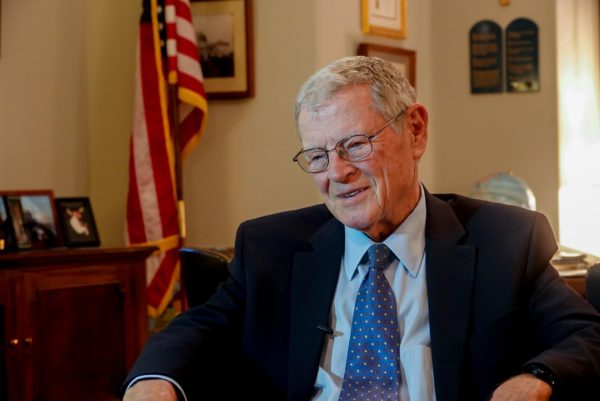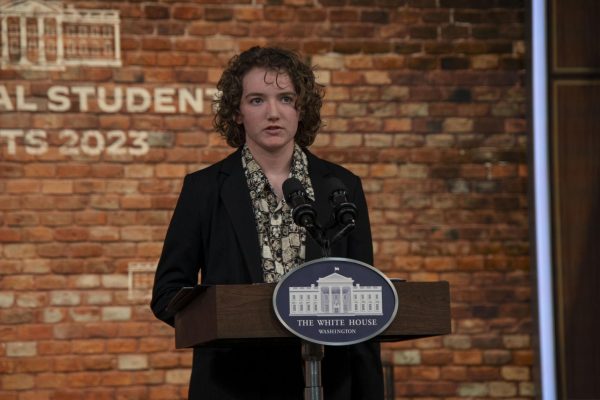OU professor says university’s rural Oklahoma initiatives are making a difference
Rayburn House Office Building in D.C. where Dr. Hott attended a committee hearing Mar. 29 to discuss challenges faced by rural communities in the U.S. (Gaylord News photo/Gabriela Tumani)
WASHINGTON, D.C. – An University of Oklahoma professor who says the university’s initiatives in rural Oklahoma schools are making a difference went to Washington recently to lobby for more money where that came from.
Brittany Hott, an associate professor of educational psychology and special education at the University of Oklahoma, emphasized the need for more resources to assist rural educators and students with disabilities. She called for increased funding for the Disabilities Education Act (IDEA), personnel preparation and research.
Drawing on her experience with teaching methods for rural students with learning and behavioral disabilities, and her work assessing and evaluating rural education, Hott said personnel shortages, a lack of access to professional development and a lack of resources are among the challenges rural educators continue to face.
Hott told members of a congressional subcommittee that preliminary results from projects at OU that serve rural communities, which are funded by the federal offices of Special Education and Rehabilitative Services, and the Elementary and Secondary Education, have been “quite positive.”
She said school partners have reported increased academic achievement, fewer suspensions and improved capacity to deliver special education services.
“Currently nine districts are partnering and over the next four years we anticipate that an additional 31 districts will benefit,” Hott said.
Cian Brown, an assistant professor of educational psychology at OU, helps to lead the Project Rural Innovation for Mental Health Enhancement (PRIME) grant. He said the project trains school-based mental health providers across several disciplines including applied behavior analysis, social work and professional counseling.
Brown said the grant helps students with tuition and fee waivers, annual stipends, exam preparation materials, access to workshops and training provided by experts in the field, supervision and more.
“During their academic program, students complete clinical training requirements in selected school districts to address the current gaps in services,” Brown said. “Currently, we have agreements with nine districts and are continuing to grow. Upon graduation, these students will be prepared to go into Oklahoma schools that are in rural, high-need areas to provide services.”
As Oklahoma and other states continue to grapple with a teacher shortage worsened by the COVID-19 pandemic, Hott said a lack of personnel is a key issue.
“In our rural schools, we wear multiple hats. It’s not uncommon to see the principal also teaching algebra and driving the school bus,” Hott said.
“And we can see that as a deficit, or we can see that as a strength. If we had increased funding and support, to train our leaders and our teachers and ensure that we have quality teachers and quality leaders, we’d have better outcomes for kids.
“Those shortages lead to an inability to provide early intervention services for children and an over-emphasis on compliance,” Hott said. “They are more pronounced in our rural districts where schools are twice as likely to experience difficulties with teacher retention than our suburban counterparts.”
Though Hott said grants and school partnerships have been key in addressing the needs of education in rural communities, the primary solution for the lack of trained personnel, for instance, is to allocate funds to IDEA Part D, National Activities to Improve Education of Children with Disabilities, so more leaders and teachers can be trained.
According to the U.S.Department of Education, IDEA Part D provides funding to support national activities aimed at improving the education of children with disabilities. Though it does not specifically provide funding for tuition for education majors, the funding provides support for research, technical assistance, model demonstration projects, dissemination of information and support for parent training and information centers.
Hott said there is a misconception that students can only be served through Title I or IDEA funds, but there is a diverse range of personnel and resources to help meet their needs. She also mentioned cases where a general educator and a special educator work together in a co-taught classroom to serve a student with a disability, sometimes leaving them to deal with multiple tasks simultaneously.
“There are waiting lists of children to be evaluated for special education of over 100 students. A special ed director told me yesterday that she had a student in crisis, and there’s one special (education) teacher that’s serving both the middle and high school and she couldn’t handle both situations at the same time.”
Hott said continuing funding of IDEA and programs that support rural and special education are necessary to address the teacher shortage in rural communities, and ensure students are being provided with essential services to equip them with skills and knowledge needed for their future careers.
“I’m here asking for your support to ensure our children are workforce ready, highly productive and strong citizens,” Hott said. “We cannot do that without funding for IDEA, personnel preparation and research.”
Gaylord News is a reporting project of the University of Oklahoma Gaylord College of Journalism and Mass Communication. For more stories by Gaylord News go to GaylordNews.net.

Back in Oklahoma and across the country, Gabriela has been involved in multiple journalism roles. She worked as a reporter for OU Daily, a host for the KGOU radio, participated in the News21 investigative program in Phoenix, AZ, interned at KOCO 5 News in Oklahoma City, and works as a reporter for OU’s student-led newscast, OU Nightly, also providing content in Portuguese and Spanish.
Gabriela loves to write and produce stories that pertain to the international community with the hopes of one day becoming an international news correspondent.


